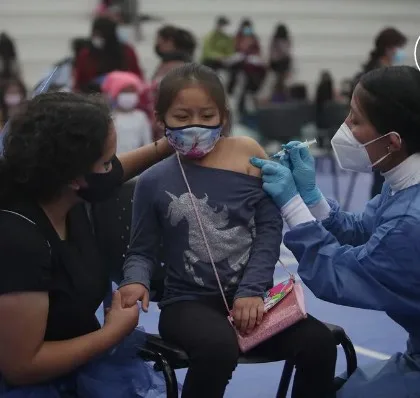After more than 900 days in the presidency, Lasso leaves a mess for Daniel Noboa
By Carolina Mella
When Guillermo Lasso stepped down as president on Thursday, he had been in office for 913 days. During this period, Ecuador gradually collapsed politically, socially and economically. The state of affairs has become so extreme and rapid  that for the first time in history the president had to resort to activating the safety mechanism permitted by the Ecuadorian Constitution: the so called muerte cruzada (‘cross death’), in order to dissolve the country’s National Assembly and prematurely hand over the executive power. The new president, Daniel Noboa, a 35-year-old businessman was sworn into office in the National Assembly, with which he is believed to have reached a governability pact, something Lasso was unable to do.
that for the first time in history the president had to resort to activating the safety mechanism permitted by the Ecuadorian Constitution: the so called muerte cruzada (‘cross death’), in order to dissolve the country’s National Assembly and prematurely hand over the executive power. The new president, Daniel Noboa, a 35-year-old businessman was sworn into office in the National Assembly, with which he is believed to have reached a governability pact, something Lasso was unable to do.

New President Daniel Noboa and outgoing president Guillermo Lasso during a meeting last week in the presidential palace in Quito.
In order to get a better understanding of the country that Lasso is passing on, we must look at the Ecuador that he inherited in 2021. This was a year when the country was still in the midst of an emergency due to the Covid pandemic. The new president was able to vaccinate almost nine million people in three months, which gave hope that the economy would make a speedy recovery, because the pandemic had wiped out close to one million jobs. Lasso promised to restore them in the first two years of his administration.
When the president took his seat in the Carondelet Palace, insecurity was bordering on a rate of 12 homicides per 100,000 inhabitants, with violence on the rise. “Lasso was handed a moderately weakened State, with scarce public investment and high debt. Eight out of 10 citizens felt pessimistic about the present situation, but he brought high expectations to the country,” says the political analyst, Pedro Donoso. “After so many attempts to come to power, he was expected to take on governance of these problems,” adds Billy Navarrete, director of the Human Rights Committee, who goes on to say: “That did not happen, what has been evident is a total abandonment, which has left us with a bare skeleton of a country.”
By the first quarter of his administration, the Lasso effect and his vaccination plan were perceived positively by 70% of citizens, according to the opinion polls, but this was soon undone by the first prison massacres and his lackluster response to controlling the country’s penitentiaries. Then came the second, third, fifth prison riots within the first year of his mandate alone, where 148 prisoners were brutally massacred. In 30 months, the relatives of 573 individuals deprived of liberty have been burying the remains of mutilated and incinerated bodies resulting from 12 prison massacres in the country’s penitentiaries.

Although Guillermo Lasso received high marks for his handling of the Covid-19 pandemic, Ecuador went downhill afterward.
The violence in the prisons scaled the walls and spread to the streets. At first it was concentrated in Guayaquil, but it quickly spread to other areas such as Quevedo, Manta, Portoviejo, Chone, Esmeraldas, Sucumbíos and the capital, Quito. “On a community level, what has happened is comparable to a natural disaster; state neglect has produced this,” says Navarrete.
To be clear, the crime and violence in the country is concentrated on the coast, where criminal gangs associated with drug exportation operate. Some cities in the Ecuadorian Andes have felt only a minor impact from the growing insecurity, and crimes rates are actually dropping in Cuenca and Loja, in the south.
For Carlos Jaramillo, a security guard in Guayaquil, the country left behind by Lasso is the most insecure he can recall in the nearly 60 years of his life, and the data provides the explanation. So far this year, 6,834 violent crimes have been recorded, 3,000 more than the previous year, which was the worst year in terms of insecurity for the country. Lasso’s administration hands over a country with a rate of 38 homicides per 100,000 inhabitants. Carlos works as a security guard for a building in a residential neighborhood. When he was on duty, electricity cables were stolen from his house in the Monte Sinai neighborhood, located one hour away, “My wife was out at a doctor’s appointment and the thieves took advantage of the situation to steal everything, down to the last copper wire, which is what they sell.” That night Paula, his wife, slept in the dark and the impact of the burglary brought on one of the many headaches she suffers from. “Many nights we don’t sleep because of her cries of pain.”
The country that Carlos now inhabits does not provide adequate health care. A few minutes from where he lives, one of the city’s large public hospitals is located. It was built in 2018, but only the infrastructure remains, because “inside, the care is terrible,” says Jaramillo, “you have to wait hours for them to say that they don’t have the equipment to do the tests, or the specialists are not there, and they send us home with a pain reliever.” In two years, public hospitals have experienced constant shortages of medicines and medical supplies. Patients must buy their own medicine, suturing threads and even surgical gloves for the doctors.
Education has also suffered, with some 50,000 children and young people dropping out of the school system in the last year to join criminal gangs or because they do not have the funds to pay for things like uniforms and transportation. In cities such as Durán, Guayaquil and Esmeraldas, children are continuously opting for online classes because the state is unable to guarantee their safety in schools.
In 913 days, the campaign’s main promise, the stabilization of public finances, has not been fulfilled either. Lasso leaves a stagnant economy with a public debt of US$75 billion, equivalent to 62% of GDP. In September, the fiscal deficit reached $3.2 billion, according to Cordes’ analysis, and historically it doubles in the last quarter on account of the additional salaries paid in the public sector in December. This is because oil exports have plunged by 45% and tax collection has also dropped. Poverty has not been significantly reduced either. More than five million Ecuadorians have to live on three dollars a day, and the gap is even wider in rural areas, with historic peaks reached during the pandemic. However, the president claims among his achievements to have lifted 20,000 children out of chronic child malnutrition.
Lasso refuses to recognize any of this, and to prove it he has written a book outlining his successes: 900 días: democracia y resultados (900 Days: Democracy and Results). “This book is dedicated to my detractors, who said that Lasso did nothing, so that they have something to read and stop talking rubbish,” said the president at a ceremony to hand over housing units, which added to those of his two years of government amount to 30,000, although by this time there should have been 100,000, according to his campaign pledge.
At the same event, where Lasso delivered one of his last speeches as president, he once again placed the blame for the country’s crises on his political adversaries. “The slackers, those who only care about themselves, who live in Belgium, and from there attempt to manage Ecuadorian politics,” he said in reference to former president Rafael Correa. “Another lady living in Washington who controls votes in the Assembly,” in reference to María Paula Romo, Lenin Moreno’s former minister of government, “and there is another one who spends more time in Miami than in Ecuador,” in reference to the leader of the right-wing PSC party, Jaime Nebot, whose backing he received to become president but with whom he broke off relations as soon as he came to power after negotiating with Correa’s party for the authorities of the Assembly.
Ecuador’s National Assembly is prepared for the change of administration. In his final days in office, Lasso inaugurated works and bestowed decorations on nine ministers, including those responsible for failing to control the country’s security crisis. However, the outgoing president cleared any doubts about his future: “In 2025, we will return to restore order and continue our work of service to the Ecuadorian people.” According to surveys, 88% of the population disapproves of his government.
________________
Credit: El Pais






















